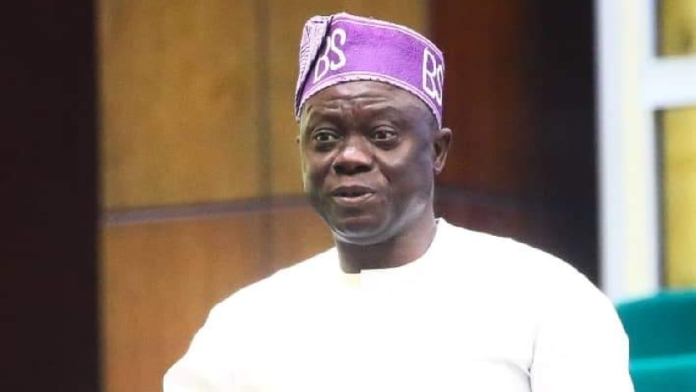A member of the House of Representatives, Bamidele Salami, has called for a comprehensive implementation of the Child’s Right Act across the country.
Mr Salami who serves as the chairman of the House Committee on Public Accounts urged governments at all levels, organisations and individuals to work collaboratively towards the implementation of the and funding of education.
Speaking on the sidelines of the 2024 National Children Leadership Conference, organised by Children of Africa Leadership and Values Development Initiative (CALDEV), the lawmaker said the Child’s Rights Act has enough provisions to protect every child.
Mr Salam, who is the founder of CALDEV also noted that the Act provides children with all that they need to live a meaningful and reproductive life.
He said that the Child’s Right Act criminalised children hawking, begging in the streets and prohibited them from being out of school during school hours.
The lawmaker stated that the Act clearly spell out penalties for parents and guardians of such children found on the street during school.
“How many parents have you seen taken to court are charged with not putting their children in school and being made to face the consequences?” he queried.
He said, “I think the area where we need to work more collaboratively with individuals, organisations and government is implementation of the letters and the spirit of the Child Rights Act and other laws enabling protecting the children and the rights of the children, and then devolving more money into education.
“We have to fund education; we should go beyond lip service on matter of free education. Any nation that intends to grow, to develop and to impact must be able to provide education for children.
“You know, within the first 12 and 15, years of their life, free education, even before tertiary education,” he said.
Speaking on the conference, the lawmaker said it was aimed at providing the participants with opportunities for leadership education beyond the normal pedagogical curriculum.
He explained that CALDEV had partnered various agencies to donate over 50,000 copies of books to schools across the country.
“True education is not about reading and writing. Is about ability to think deep, creative thinking, collaboration and problem solving.
“A lot of children who have attended this conference have testified to the fact that coming here has enhanced their ability to solve problems, ability for critical thinking, ability to collaborate with other children for the purpose of solving problems.
“In most of the schools, you know where they come from. They go back to those schools and also become trainers, training other persons that couldn’t attend this programme. We have members and leadership of the Nigerian Parliament who have come to attend the programme,” he said.
Mr Salami said that there would be delegates from some West African countries such as Ghana, Gambia, Sierra Leone, among others at the 2025 edition of the conference.
Also speaking, the chairman of the House committee on youth development, Martins Esin applauded the initiative, saying it will help the children and teenagers in self discovery and acquisition of leadership skills for their individual and national development.
The member representing Oron/Mbo/Okobo/Udung Uko/Urueoffong Oruko Federal Constituency of Akwa Ibom, said that self discovery was an important part of the leadership journey.
According to him, you must first have to discover yourself, and I think that is what the conference aims to achieve.
“We want these children to realise who they are. We want them to know themselves, so that they can become the leaders that this country is looking for. So we are talking to them about self discovery.
“What are their strengths, what are their weaknesses, what values can they pick up at this gender age, and what do they believe in.
“These are the pillars that form the effective leadership that we are talking about, and something makes me to feel that once we can identify them young in this country, I am very sure that we will get it right, because within that demography of 13 and 17, we have a lot of very intelligent Nigerians.
“What we are doing now is beyond the doctors and lawyers that they want to be.
“We also want to focus them on leadership, after identifying that leadership is something that should be part of all of us because you must first lead your family and other areas of socialisation,” he said.



